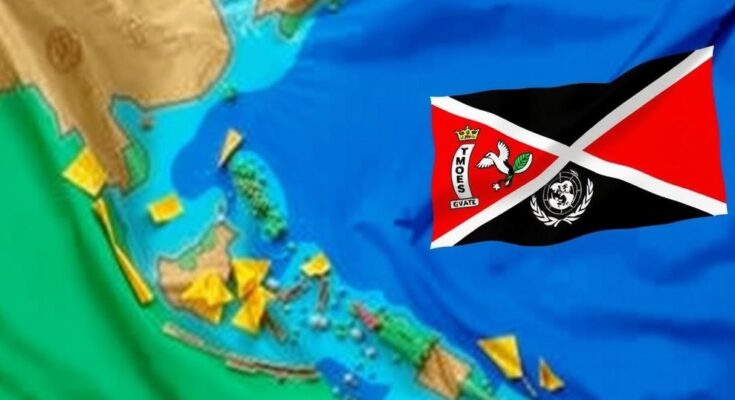Papua New Guinea has announced its boycott of the upcoming UN climate summit, denouncing the event as ineffective due to major polluters’ actions. Foreign Minister Justin Tkatchenko criticized the current climate negotiations as a waste of resources and indicated the pursuit of bilateral climate agreements with countries like Singapore instead. The decision reflects broader frustrations among Pacific nations regarding inadequate global climate action and the need for meaningful progress in climate negotiations.
Papua New Guinea has declared its intention to boycott the upcoming United Nations climate summit, scheduled for November, with Foreign Minister Justin Tkatchenko denouncing the proceedings as ineffective due to the actions of major polluting nations. In an interview with AFP, Minister Tkatchenko expressed discontent with the lack of genuine progress in addressing climate change. “There’s no point going if we are falling asleep because of jet lag because we’re not getting anything done,” he stated. He emphasized the frustration felt by nations like Papua New Guinea, which is home to a significant portion of the world’s rainforest and stands as a frontline nation against climate change impacts. Tkatchenko further criticized the promises made by larger polluters, asserting, “All the big polluters of the world promise and commit millions to assist in climate relief and support. And I can tell you now it’s all going to consultants,” highlighting a perceived diversion of funds away from impactful initiatives. As a nation already vulnerable to climate-induced catastrophes, Papua New Guinea’s stance resonates with the broader sentiments among other nations in the Pacific region, particularly smaller island nations facing existential threats from rising sea levels. In lieu of participating in the COP29 summit, Papua New Guinea aims to forge its own climate agreements through bilateral engagements, indicating ongoing discussions with Singapore as a potential partner. Minister Tkatchenko noted that this approach could yield more substantial results than leading an ineffective UN conference: “With like-minded countries like Singapore, we can do 100 times more than COP.” As part of a coalition with four other Pacific nations, Papua New Guinea is also involved in an International Court of Justice case that could establish precedents regarding climate obligations accountability for polluters. Minister Tkatchenko’s position has garnered support within the region, underscoring a united front among Pacific states against the inadequacies of current global climate action efforts.
The article discusses Papua New Guinea’s decision to boycott the forthcoming UN climate summit, emphasizing the country’s frustration with the lack of effective climate action from larger polluting nations. The backdrop of this decision is rooted in the ongoing vulnerability of Pacific nations to climate change effects, exacerbated by inactive funding mechanisms and perceived insincerity from developed countries. The minister’s call for a boycott highlights a growing disillusionment with UN climate summits, which are viewed as repetitive and unproductive, while expressing the need for more substantive and actionable agreements through direct negotiations with other nations.
In conclusion, Papua New Guinea’s decision to boycott the upcoming UN climate summit reflects a growing sentiment of frustration with ineffective climate negotiations dominated by major polluters. By seeking alternative partnerships for climate agreements, the nation aims to secure a more impactful approach to combating the global climate crisis, vocalizing the needs of vulnerable Pacific nations in the face of escalating climate threats. The emphasis on bilateral discussions may set a new precedent for how smaller nations engage in climate advocacy moving forward.
Original Source: www.straitstimes.com




